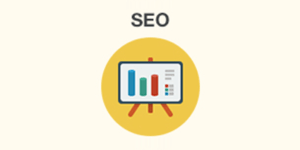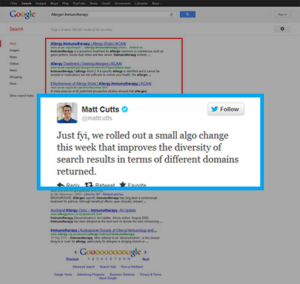Many businesses use contextual links on their websites to gain traffic and search engine optimization (SEO). Some have identified the pros and cons of these links and have started to use them as an advantage. Let’s examine this closer and discuss what contextual links are.
What is a contextual link?
A contextual link is a keyword or a phrase that is “clickable” on a website. These keywords, when clicked on, lead to another website page with a related topic. For example if you are skimming through content and see the word “affordable cooking utensils” underlined, highlighted, bold or even in italics you are able to click on it and be directed to web content related to affordable cooking utensils. This is a huge benefit to your website if used correctly, as it drives traffic to the page you want people to view most. Further, it is important to understand that contextual links should direct the audience to relevant content pages. For example the contextual link of the “affordable cooking utensils” should not direct the audience to a “used car” webpage content.
There are essentially three types of contextual links, here they are:
- External Links- These links are also known as “outgoing links” and are directly in your webpage content. These links direct traffic to another websites content with a “clickable” keyword or phrase.
- Internal Links- These links are found as a “clickable” keyword or phrase on your webpage content that direct traffic another piece of content on your website
- Reciprocal Links- These links can be known as favors from other websites. This is when another website admin asks you to link a user directly to your website from a “clickable” keyword or phrase. This is a tool that helps websites connect, and help each other bring SEO to their websites.
- Google likes contextual links for many reasons that will be discussed below as advantages. It is important for website owners to understand how to use contextual links, as they may lead to a negative effect. Make sure you link with prospering and quality websites, as poor low traffic websites may cause damage to your overall SEO.
Advantages of Contextual Links
- Brings traffic to your website
- Search engines are more likely to rank websites with contextual links higher, with those who do not have any. As a result, your website will gain more traffic as search engine want to satisfy customers with the most creditable information
- More traffic on your website leads to more sales and customer, which of course leads to more revenue!
- Contextual links get credibility and trust from search engines, which leads them to rank your website higher
- These links provide users with more information on the topic
- Writers and bloggers will become aware of your website
- Writers and bloggers might want to link back to your website, this will bring more exposure to your site, bringing in more traffic
- Your site gains more recognition as it gains traffic with the links
- Google likes to see websites increase user experiences, this will surely increase your ranking when Google and other search engines see you provide relevant content
- You gain trust and credibility
So to sum this all up, contextual links are great for bringing traffic into your website and gaining trust of search engines! Seeking relevant websites to link back in to your articles shows search engines you are associated with quality websites that can improve your websites image and ranking. Search engines want websites to compete in providing the best user experience, with this competition websites are forced to provide valuable and credible content.


